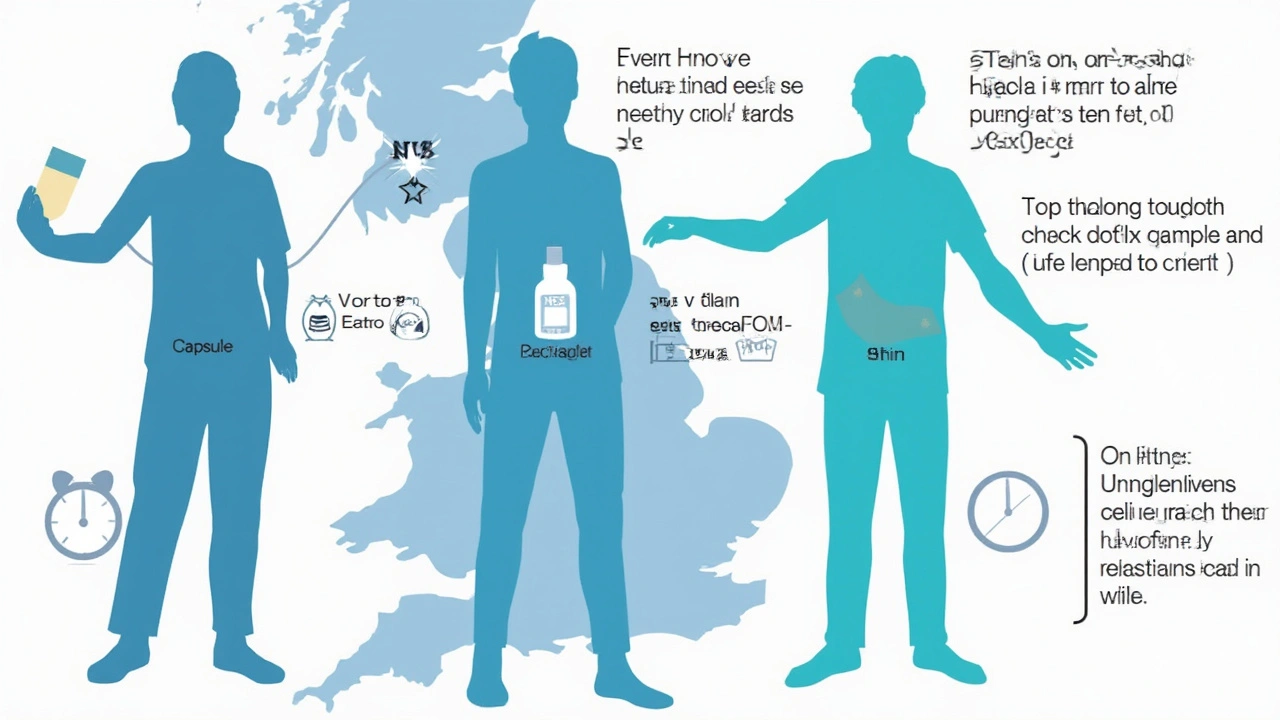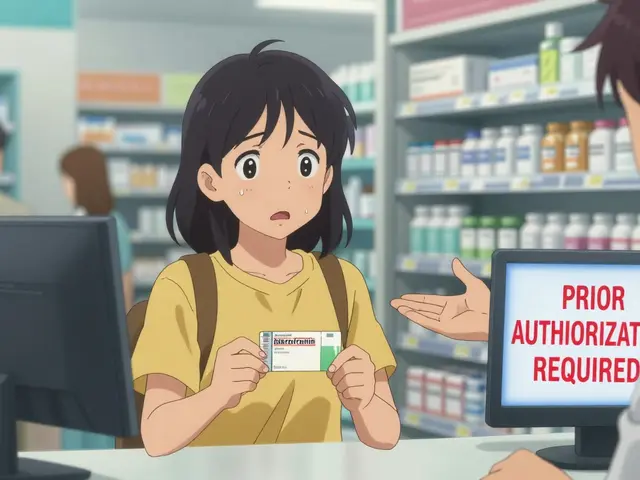Imagine constantly losing bits and pieces of your day—misplacing keys, forgetting familiar faces, or grappling to remember memories you always took for granted. That’s the reality for millions of people with Alzheimer’s disease or Parkinson’s disease dementia. When doctors prescribe Exelon (the brand name for rivastigmine), they’re hoping to put a bit of that control back in your hands. It isn’t a miracle pill, but it does offer a real shot at slowing symptoms—a lifeline in a world that often feels like it’s slipping away.
What is Exelon and How Does It Work?
Exelon, also known as rivastigmine, belongs to a family of drugs called cholinesterase inhibitors. The reason for this fancy name comes down to brain chemistry. In the brains of people with Alzheimer’s or Parkinson’s-related dementia, levels of a key messenger chemical, acetylcholine, drop. This chemical helps with memory, thinking, and everyday functioning. Exelon slows the breakdown of acetylcholine, letting whatever is left stick around a bit longer and do its job.
The science isn’t wishful thinking—it’s backed up by big numbers. In a 24-week trial published by the New England Journal of Medicine, people taking Exelon showed slower cognitive decline compared to those taking a placebo. If you’re curious what that looks like, think of remembering more names, doing slightly better with daily chores, and carrying on conversations for longer. It won’t turn back the clock, but it can dull the edge of memory loss, especially in the early stages.
Exelon was first approved by the FDA back in 2000 for Alzheimer’s disease; later, it also got the green light for treating dementia tied to Parkinson’s disease. That set it apart from similar medications. About 6.7 million Americans live with Alzheimer’s as of 2024, and nearly a million have Parkinson’s-related dementia. For many, Exelon represents one of the few tools available to manage life-altering symptoms. Treatment can be started early (usually once memory or thinking problems pop up), and it tends to work best when you’re dealing with mild to moderate cognitive problems.
If pills don’t work for you—or remembering to swallow them at the right time is tough—there’s Exelon Patch. It sticks onto your skin (upper back, chest, or arm), delivering medicine steadily throughout the day. This patch means no daily pill reminders and can cause fewer stomach problems for some. There’s also an oral solution, which can be measured with a dropper—useful for anyone who has trouble swallowing pills.
| Form | Typical Dose | Duration |
|---|---|---|
| Capsule | 3mg-6mg twice daily | 12 hours |
| Oral Solution | 3mg-6mg twice daily (using a dropper) | 12 hours |
| Patch | 4.6mg/24hr or 9.5mg/24hr | 24 hours (changed daily) |
One myth that needs busting: Exelon won’t cure Alzheimer’s or Parkinson’s, and it doesn’t stop the disease from getting worse forever. What it does is slow down how fast symptoms get worse, at least for a while. For some, this means months (or a year or so) with less confusion or trouble handling daily tasks. Families often notice when a loved one stops Exelon—the “fog” can seem to settle in faster. That’s why many neurologists say to keep it going as long as possible, unless the side effects become too much.

Side Effects, Practical Tips, and What to Expect with Exelon
All meds have their quirks, and Exelon is no different. If you’re worried about side effects, you’re definitely not alone. The most common complaints are nausea, vomiting, loss of appetite, and diarrhea. These issues happen most when you first start or when your dose is bumped up. About one in five people have some sort of tummy trouble. The patch version helps a lot—skin irritation can crop up, but stomach upset is usually milder.
Managing these issues takes a bit of know-how. Here’s what a lot of doctors suggest:
- Start low and go slow: Begin at the lowest dose and only crank it up after a few weeks. This gives your body time to get used to it.
- Take with food: This isn’t just good advice for general health—it specifically helps lessen nausea and vomiting.
- Hydrate: Diarrhea or upset stomach can cause dehydration, especially in seniors. Keep water or electrolyte drinks handy.
- Rotate patch sites: If you’re using the Exelon Patch, switch where you stick it each day (upper back one day, chest the next, upper arm after that) to avoid rashy, red skin.
- Watch for weight loss: Appetite changes can sneak up. Monitor weight every couple of weeks, especially for people who are already thin or frail.
Some rare issues are worth knowing. Sometimes, Exelon can slow heart rate or worsen asthma or other breathing problems—especially in people prone to those. If anyone faints or gets super dizzy, let your doctor know right away. Hallucinations (seeing or hearing things that aren’t there) have popped up in a few cases, especially if the dose is too high or someone already has mental health issues.
Not all drugs play nice with Exelon. Other cholinesterase inhibitors (like donepezil or galantamine) shouldn’t be taken at the same time. Tell your doctor about heart meds, certain antihistamines, or any over-the-counter allergy pills (diphenhydramine, for example), because they can either blunt Exelon’s effect or make side effects worse.
If you miss a dose, don’t double up—just skip it and carry on with your usual schedule. If you stop taking Exelon for several days, you’ll want to talk with your provider before restarting, as you might need to begin at the lowest dose and work back up.
A tip families swear by: Use a sticky note on the fridge or a pill organizer to help keep track. Setting an alarm on the phone for patch changes works, too. The fewer surprises, the better.
Now, Exelon isn’t cheap, especially if you stick to name-brand patches. Ask your doctor or pharmacist about generics—rivastigmine patches exist and are just as effective, but cost much less. Insurance may require you to use these, but for many, it’s a real budget saver. If you’re stuck, manufacturer coupon programs or nonprofit groups sometimes help with co-pays, especially for seniors on fixed incomes.

Living with Dementia: The Human Side of Exelon
There’s a lot of talk about clinical trials, brain chemistry, and statistics—but what does Exelon mean to real people and their families? It’s all about fighting back against helplessness. When you see someone with dementia suddenly remember their grandkid’s name after weeks of confusion, it feels like magic, even knowing it’s only for a short while. That’s not rare; those “good days” happen more often for a chunk of folks using Exelon early on.
Daily routine can make or break life with dementia. Keeping bedtime steady, mealtimes regular, and engaging in simple activities (music, old photo albums, light exercise) can help Exelon work even better. It’s not all about the meds; think of Exelon as the anchor for a wider support system that includes structure, support, and lots of patience. Even small victories—finishing a puzzle, joining a conversation—can bring dignity back.
It’s totally normal to feel frustration, fear, and sadness when a loved one’s memory slips. Support groups for caregivers, both online and in person, are worth their weight in gold. They trade tips you won’t find in pharma brochures: best snacks for boosting appetite, ways to ease swallowing pills, and how to avoid battles about bath time or hygiene. Some folks have found success using the Exelon Patch during times of travel or hospitalization—when sticking to routines is tougher but a bit of stability matters most.
Long-term use is common. Sometimes the benefits fade after a year or two, as dementia progresses. Family members often notice that when they stop Exelon (either after doctor advice or due to side effects), there’s a sharper drop-off in clarity and day-to-day skill. Timing is personal—stick with it if it's helping, but keep talking with your doctor about benefits versus side effects, especially as things change. For end-stage dementia, doctors may recommend stopping it, focusing on comfort instead.
One big question crops up all the time: When is it time to start Exelon? Usually, it comes after a definite diagnosis, when memory and thinking are noticeably getting in the way. There’s genuine value in not waiting too long—early use makes the biggest difference, especially when paired with good everyday care. Just remember, Exelon isn’t a one-and-done solution. It’s a piece of the puzzle that helps slow the clock a little while longer.
The search for better dementia treatments keeps pushing forward. New types of drugs—like monoclonal antibodies and anti-amyloid therapies—are coming out, but many aren't widely available yet or have tough side effects. For now, for people with mild to moderate symptoms, Exelon stands as a well-studied, reliable option to keep memories going just a little longer—which, if you ask any family living through this, can mean everything.





Comments (11)